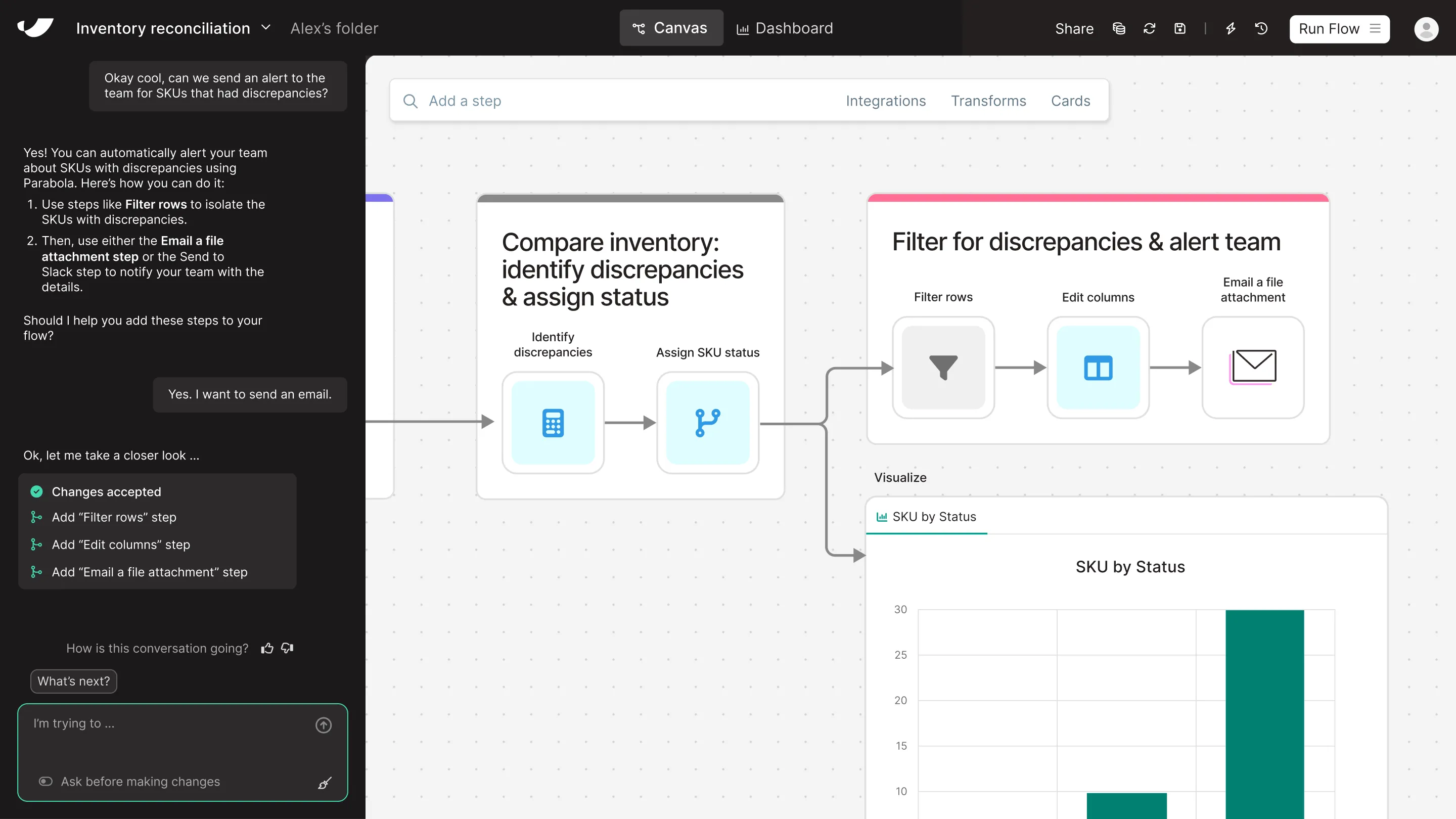The #1 no-code alternative to Workato
Discover how Parabola's intuitive, no-code platform offers an accessible alternative to Workato with rapid deployment capabilities and predictable pricing.
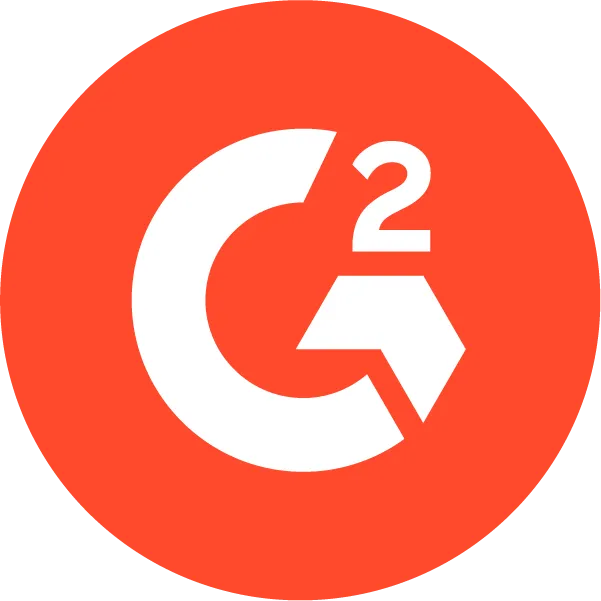
What's the difference between Parabola and Workato?
Parabola and Workato both offer automation tools, but the difference lies in how quickly teams can see value and who can actually use the tool. Workato is geared toward technical users with deep integration knowledge, often requiring IT support or consultants to set up and maintain automations. Parabola is built for spreadsheet-fluent business users who need to solve problems now. With Parabola’s drag-and-drop interface, teams can automate processes in hours—not weeks—and own those workflows without relying on engineering.
Get a demo









































Parabola vs Workato feature comparison






























Estimate the ROI of trying Parabola
Looking for a Workato alternative?
Prove the ROI with Parabola before you're invoiced
and try our risk-free, 45-day proof of concept.
Turn messy data into automated workflows with Parabola.
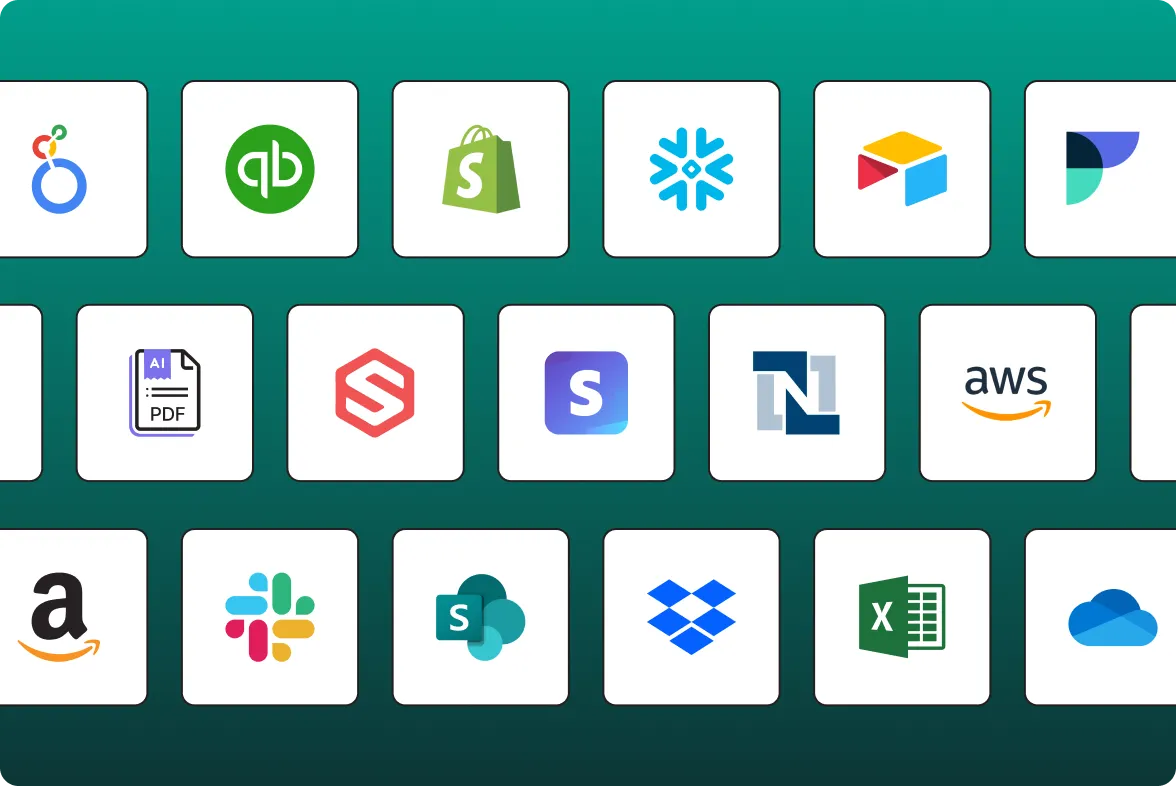
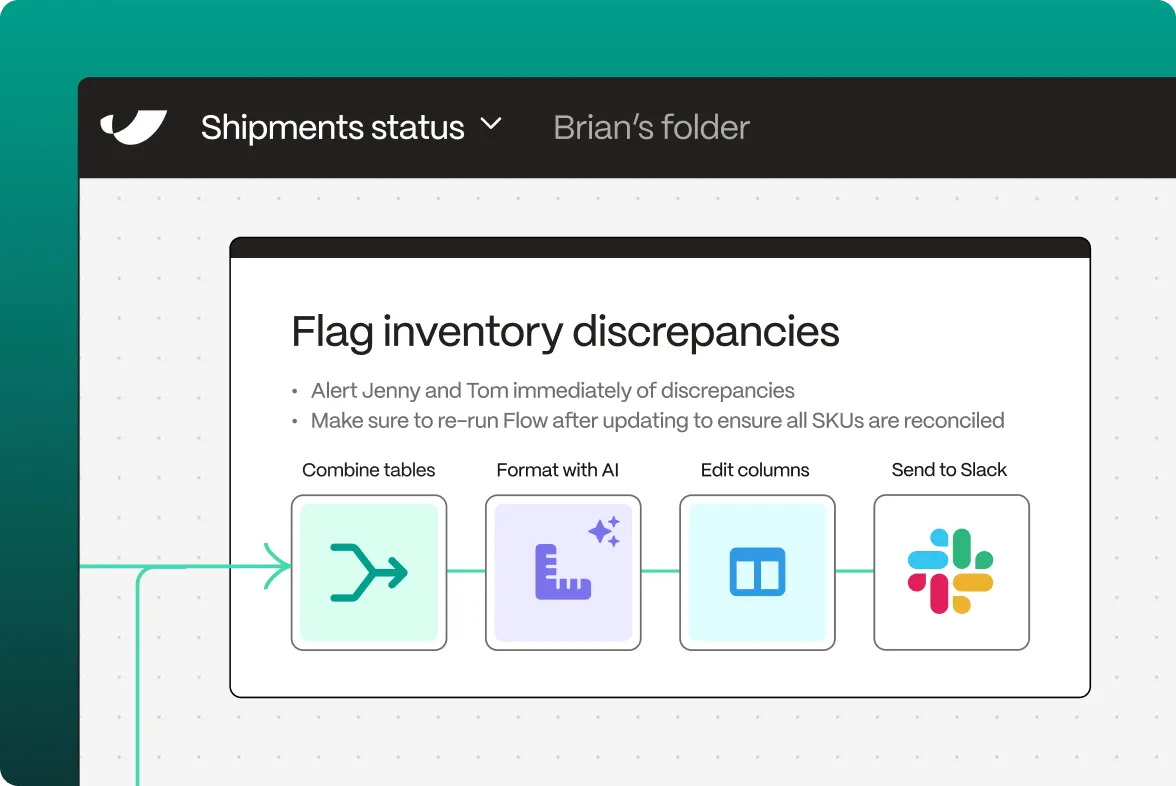
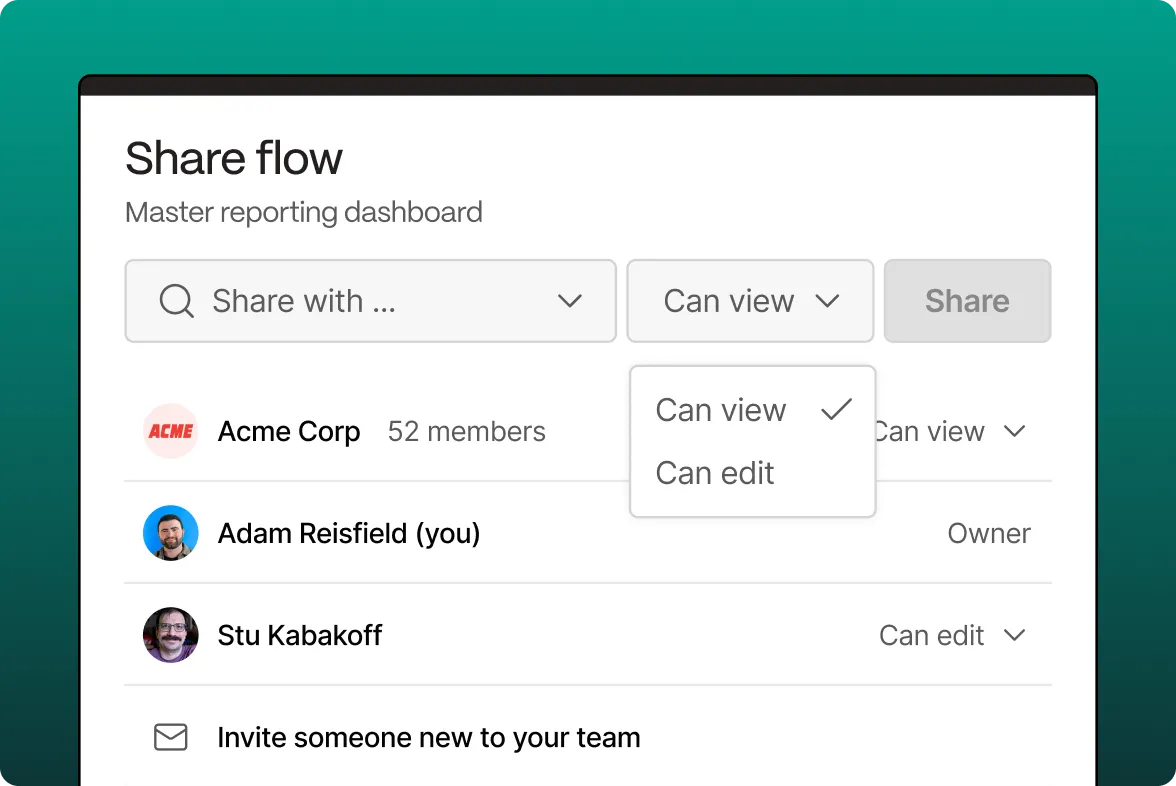
Built for teams of every size.
Whether you're just getting started or scaling fast, our AI-powered workflows help you eliminate hours of manual work. Pick your plan below or reach out and we’ll help you find the right fit.
Basic
- Single user
- Up to 1,000 credits per month
- Limited access to AI steps and features
- Parabola visualizations
Explorer
- Full access to AI steps and features
- Flow scheduling, up to daily frequency
- Self-guided onboarding material
- 1,500 credits per month included
- 250mb of data storage in Parabola tables
Collaborator
- Up to 3 users
- Priority chat support
- Custom flow scheduling
- Distinct user roles and permission sets
- 30,000 credits per month included
Business
- Up to unlimited users
- Tailored onboarding and new user enablement
- Custom credit allotments
- Annual credit allotments
- Usage analytics and reporting
- Priority flow queuing
- Dedicated account manager
- Auto-enrollment and domain capture
Parabola vs. Workato FAQ
While Parabola users can automate processes immediately, Workato implementations can take weeks or longer, especially when IT involvement or consultation is needed.
Parabola offers transparent, predictable pricing based on your usage, with no hidden costs. Unlike Workato's enterprise pricing model, which often includes implementation fees and consulting costs, Parabola's pricing scales with your needs.
While Workato is positioned as a low-code tool, many users find that technical expertise is required for advanced workflows and custom integrations. Parabola, by contrast, is truly no-code and built for business users.
Parabola’s intuitive interface, templates, and guided onboarding help teams get up to speed in days. Workato’s more technical environment can result in a steeper learning curve for non-technical users.
Workato has an extensive connector library, but Parabola focuses on the business-critical tools modern teams use every day, with flexible support for custom APIs and modern file types—without the need to write code.
Parabola provides comprehensive support through multiple channels, including live chat, email, and detailed documentation. Our support team responds quickly to ensure you can keep your automations running smoothly, without the need for dedicated technical support staff.
